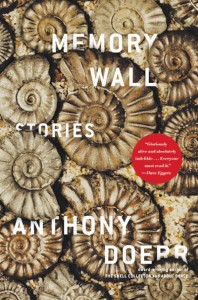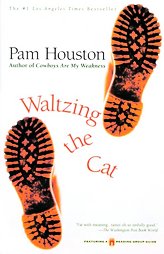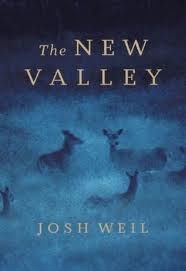This year, for the first time, I joined 2,000 other MFA students and 4,000 MFA instructors and writers in Washington, DC for the Association of Writers and Writing Programs Annual Conference. It was huge, literary, star-studded, overwhelming, dizzying, validating, and energizing. It was artsy, esoteric, and intellectual. It was also oddly trade-show-like, its exhibit halls overflowing with hundreds of booths marketing their wares in dozens of rooms.
Many of my fellow students from Pacific University’s MFA program came from all over the country. Pacific faculty were also well represented. Tayari Jones’s panel on Algonquin writers was riveting, both because of the readings and the discussion of what it means to be a Southern writer (and what it doesn’t for Jones, i.e. nostalgia for a pre-Civil Rights era). Pam Houston’s panel on the intersection of fiction and nonfiction attracted hundreds of attendees (even though it was competing with a reading by National Book Critic Circle finalists). As usual, Houston’s comments created controversy and the most heated and engaged questions from the audience. Ben Percy’s reading of his celebrated new novel, The Wilding, part of “America Reimagined: Four Contemporary Voices” filled the auditorium with more than 1,500 people, even though there were 21 other competing events.
Quite a few fellow Charlottesvillians and members of WriterHouse (www.writerhouse.org, my home away from home) also attended, and some–including Cliff Garstang (whose panel on linked stories was so popular the audience overflowed into the hallway) and Kristen-Paige Madonia–participated in readings and panels. WriterHouse president Rachel Unkefer invited a slew of authors and editors to give readings and talks in Charlottesville, and she also managed to snag free subscriptions to literary journals for the WriterHouse library (an extra incentive to stop by, locals).
Other highlights were a reading by Josh Weil (whose trio of novellas, The New Valley, is one of the best books I read this year) reading from an unpublished historical novel set in Egypt and a panel with directors of literary centers around the country, who are actually thriving. I went to an off-site small press reading and missed Junot Diaz, a literary rock star who deserves the reputation, since I had heard him before. But I’m sorry I didn’t get to see the sign language interpreter trying to keep up with his rapid-fire mix of Spanglish, obscenity, and verbal pyrotechnics.
The thrill of being in the front row in a packed hall seating 3,200 people waiting to hear Jhumpa Lahiri was worth the price of admission (actually, I would pay more than the $40 student discount for that). A few days later, when I joined millions of viewers watching the Superbowl on TV, I remembered that huge crowd assembled not for football, not even for pop music, but for literary fiction! I am not alone, the legions of fans in the rows behind me, said. We writers and readers are a crowd to be reckoned with.



